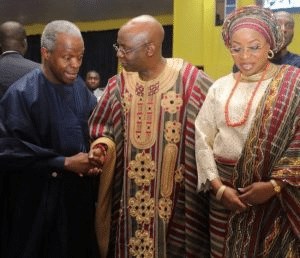Plateau: Farmers/herders move to end hostilities after 18 yrs of conflict

By Kingsley Chukwuka, Jos
An enclave called Mahanga in Rankum community of Riyom Local Government Area of Plateau state is now open to accept back the natives and other inhabitants who fled the community as a result of the incessant crisis between herdsmen and farmers.
Rankum as it was originally called before being taken over by the Fulanis and renamed Mahanga, was for the past 18 years a no go area for the indigenes of the state.
The same tale will also be told by the Fulanis who will not also venture into the Jol community in the same Riyom council area for fear of being attacked and killed.
However, at the weekend, the two opposing parties came together after a painstaking effort by a non-governmental organization, known as Search for Common Ground (SFCG), in its sustainable push for peace ensured that the Mahanga and Jol inhabitants dropped their hostilities and came together to proffer a solution to their coexistence.
Speaking at an inter -dialogue section organized by Search for Common Ground for both communities, the Project Coordinator, Patience Chaimang, said since the long conflict started for over 18 years now, this is the first time the two groups are coming together to forge a way forward.
“Today, is record breaking for us at (SFCG), we have worked tirelessly to see that these two groups come together to say no to blood shedding. Before now, we have met with them separately at a forum tagged intra-dialogue and today, we are bringing them together.
“Their coming together is a starting point for peace. We believe that peace is a process and taking this first step is very crucial as we intend to sustain it for a maximum and effective result,” Chaimang said.
Also speaking, the organization’s National Peace Adviser, Ms. Ema Billings, said for the fact that the two groups are sitting down together to dialogue suggests that they are ready to change the trend of violence in Riyom.
Billings said many organizations have tried to bring the waring group together, but both communities did not quite trust them.
“They responded to us because according to them, we are the first people to ask them what their grievances were and we also went into their communities to find out ourselves.
“I can tell that there is hope to end the wanton killings that have engulfed this locality,” Billings added.
Responding, the Imam of Mahanga, Malam Suleiman Ibrahim said it is time to lay down the sword and embrace each other.
Ibrahim said the issues that triggered violence as identified are blocking of cattle routes by farmers, beating of shepherds in the bush by farmers which resulted in injuries and sometimes death and hate speech amongst others.
Also speaking to journalists, the Youth Leader of Jol, Mr. Ching Samuel identified grazing close to residential houses, reserved areas, irrigation farms and burial grounds as key conflict triggers.
Our correspondent reported that the two groups were coming up with a communique aimed at addressing the issues raised as conflict triggers.








